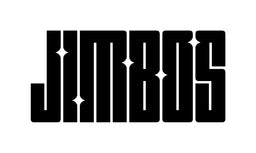Do You Really Need the Two-Bucket Method?
The two-bucket wash method has been around for decades — but is it still necessary? In this guide, we’ll look at whether modern soaps and pre-soak techniques make this old-school method outdated, and what you should do instead to keep your paint swirl-free.
What Is the Two-Bucket Method?
The traditional two-bucket method uses one bucket for your soapy water and another for rinsing your mitt. The idea is that after each pass, you rinse dirt from your mitt in the clean water before dipping back into the soap bucket. This helps keep your soap solution cleaner and reduces the risk of dragging debris across your paint.
It’s a simple concept that works — but detailing has evolved. With today’s lubricated soaps, foam cannons, and pre-soak methods, there are now safer and faster ways to wash your car.
Why the Two-Bucket Method Became Popular
When car washing first went mainstream, most soaps were basic and lacked the slick lubrication that modern formulas have. That meant you had to manually control dirt contamination using multiple buckets and grit guards. It worked well for its time, but as product chemistry improved, the two-bucket method became less essential for most detailers and enthusiasts.
The Problem With the Two-Bucket Method
While it sounds safe, the two-bucket approach actually introduces several issues:
- Cross-contamination: The rinse bucket still accumulates grit that can cling to your mitt between panels.
- Time-consuming: Constantly rinsing and re-dipping slows the wash process significantly.
- Wasteful: You use more water and soap than needed — not ideal for eco-conscious washing.
- Still contact-heavy: The method doesn’t address the main cause of swirls — touching the paint too soon.
Today’s semi-touchless wash methods eliminate most of these problems while delivering even safer results.
The Modern Alternative: The Pre-Soak + Foam Method
Instead of relying on buckets, start with a full pre-soak and foam application using The Super Soaper. This lubricated pre-wash loosens and lifts dirt before you touch the surface. After rinsing, you can do a quick contact wash with a clean microfiber mitt and fresh foam — no buckets needed.
This approach achieves the same safety goal but adds the advantage of removing up to 90% of dirt before you touch the paint. That means less friction, less risk, and faster results.
Step-by-Step: The Bucket-Free Wash Process
- Pre-Rinse: Remove loose dirt with a hose or pressure washer.
- Pre-Soak: Apply The Super Soaper using a foam cannon or pump sprayer. Let it dwell for 3–5 minutes.
- Rinse Again: Wash away loosened grime and inspect for remaining dirt.
- Contact Wash: Lightly glide your microfiber mitt over the surface using fresh foam for lubrication.
- Final Rinse: Use deionized or filtered water if possible for a spot-free finish.
- Dry: Use a Massive Drying Towel or blower for safe, swirl-free drying.
Why Modern Soaps Changed the Game
High-lubricity soaps like The Super Soaper have revolutionized car washing. They encapsulate dirt particles and lift them off the surface, drastically reducing friction. Combined with a foam pre-soak, you’re washing in a controlled, slick environment that simply didn’t exist 20 years ago.
That’s why professional detailers — even those who grew up on the two-bucket method — have largely moved on to safer, faster modern techniques.
Safe vs Unsafe Washing Habits
| Unsafe Habit | Safe Alternative |
|---|---|
| Skipping the pre-soak phase | Always pre-soak to remove 80–90% of loose dirt first. |
| Using two dirty buckets | Use fresh foam directly on panels for a clean, lubricated wash. |
| Pressing hard with the mitt | Let lubrication and dwell time do the work — light pressure only. |
| Drying with bath towels | Use a soft drying towel or blower for swirl-free results. |
Upgrade to the Modern Wash Method
Skip the buckets and wash smarter. The Super Soaper makes safe, swirl-free washing fast, easy, and efficient.
Buy on Jimbo’s Detailing Buy on AmazonWhy Pre-Soaking Beats Buckets
Pre-soaking with foam allows dirt to loosen naturally instead of being dragged around by a mitt. It’s safer for ceramic coatings, faster than traditional washing, and uses less water. Once you switch to pre-soaking, it’s hard to go back — the results speak for themselves.
When Buckets Still Make Sense
There are still situations where buckets can help:
- If you’re washing in a garage without access to a hose or foam cannon
- If you prefer to hand-wash classic or delicate finishes slowly
- If you’re spot-cleaning a single panel between full washes
Even in these cases, you can still boost safety by pre-soaking with a spray bottle or pump sprayer before contact washing.
Related Reading
- Common Car Washing Myths That Cause Swirls
- How to Avoid Swirl Marks When Washing Your Car
- Pre-Soak Car Wash Method Explained
- The Role of Lubrication in Car Washing
- How Much Pressure Is Too Much When Washing?
- Common Rookie Washing Mistakes to Avoid
FAQs
Is the two-bucket method bad for your paint?
No — it’s not harmful, just outdated. It’s less effective at preventing swirls than a proper pre-soak and foam wash.
Can I still use the two-bucket method with modern soaps?
Yes, but it’s not necessary. Modern high-lubricity soaps like The Super Soaper perform better with pre-soak and foam applications.
What’s the safest wash method overall?
A pre-soak, foam, and gentle contact wash with clean microfiber mitts — followed by a soft towel or blower dry — provides the safest, most efficient clean.



